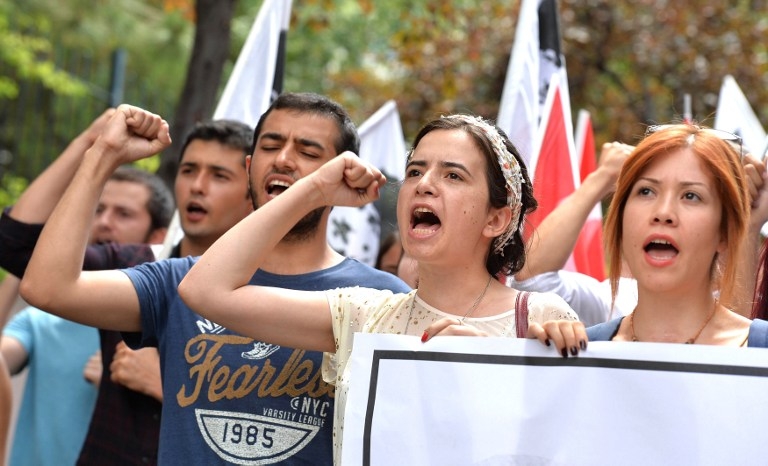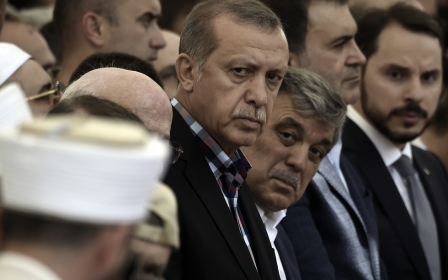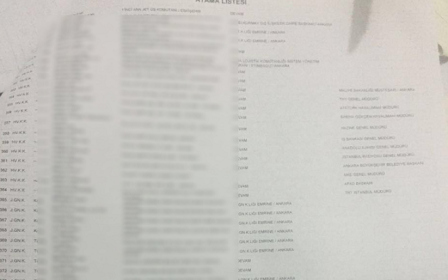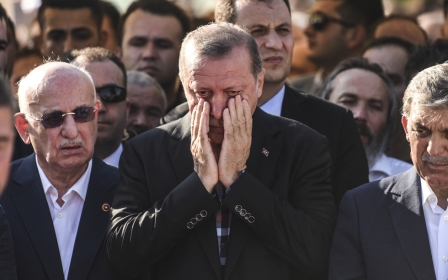Turkish academics divided as post-coup 'purge' shakes universities

ISTANBUL, Turkey - Even before Turkey’s president declared a state of emergency on Wednesday night, the country’s beleaguered academic sector was facing an unprecedented crackdown in the aftermath of Friday's failed coup.
Scores of dismissals, forced resignations and accusations of involvement in the plot in the academic world have raised serious questions about whether Turkish President Recep Tayyip Erdogan and his ruling Justice and Development Party (AKP) are using the opportunity to widen their crackdown on dissidents.
Erdogan appeared in front of the cameras on Wednesday night and announced that, following meetings held all day, a three-month state of emergency had been declared and that it was a measure intended to protect democracy rather than tarnish it.
“This is not a move against democracy or the rule of law. In fact, it is a move that will protect the rights of our citizens and that also protects our democracy," he said.
But condemnation of the declaration by Turkey’s opposition parties was swift. Ozgur Ozel from the Republican People’s Party (CHP), the main opposition, called it “a civilian coup, which is a betrayal of parliament".
Ayhan Bilgen of the pro-Kurdish Peoples’ Democratic Party (HDP) said Turkey needed to build a quality democracy in response to the coup, adding that a state of emergency would have been declared also if the coup had succeeded.
In the days leading up to the declaration of the state of emergency, around 50,000 people had already been directly affected by the post-coup crackdown. In academia alone, the Higher Education Board (YOK) demanded the resignation of every one of Turkey's 1,577 university deans at both state and private universities, who all obliged.
Four rectors, who are senior to deans and directly appointed by YOK, have also been dismissed, while one has been detained. A foreign travel ban has been imposed on all academics.
The measures have attracted the attention of international human rights organisations, with Amnesty International warning that human rights were in "grave danger" and calling on the Turkish authorities to "show restraint and respect for the rule of law".
“The sheer number of arrests and suspensions since Friday is alarming and we are monitoring the situation very closely. The coup attempt unleashed appalling violence and those responsible for unlawful killings and other human rights abuses must be brought to justice, but cracking down on dissent and threatening to bring back the death penalty are not justice,” said John Dalhuisen, Amnesty International’s director for Europe and Central Asia.
“We urge the Turkish authorities to show restraint and respect for the rule of law as they carry out the necessary investigations, granting fair trials to all those in detention and releasing anyone for whom they do not have concrete evidence of participating in criminal acts.”
Academics and analysts that Middle East Eye spoke to expressed concern over the potential misuse of powers granted to the government by a state of emergency. Most of them did, however, see it as a relatively reasonable response to the attempted coup.
The state of emergency grants sweeping powers to the government, particularly to the interior ministry and governors. Some of these extended powers include the ability to detain people for longer periods of time, make it easier to conduct searches and carry out arrests, and more stop and search powers to the police.
Other powers include authorisation to impose more control over media and declare curfews more easily.
Umit Erol, a professor and head of the business department at Istanbul’s Bahcesehir University, told MEE that the imposing of a state of emergency was justified but the way it in which it would be enforced would prove to be the determining factor.
He said some sections of society didn’t trust Erdogan’s motives and it would be important to convince them that any measures were solely intended to target US-based cleric Fetullah Gulen's Hizmet movement, which is accused of orchestrating the coup and of infiltrating the military and other state institutions.
“It is quite a reasonable response to an attempted coup. They could have declared martial law as well. But we have to wait and see how it is implemented,” said Erol.
Minutes after the state of emergency was declared, Prime Minister Binali Yildirim tweeted that the decision was not intended to disrupt the daily lives of citizens but to ensure that state mechanisms operated efficiently and speedily.
Gulen influence
Erol said there was a belief that Gulen, an erstwhile Erdogan ally who fell out with the Turkish President amid government suspicions over Hizmet's reach and influence within Turkey, retained the support of many working in Turkish universities, and that had been why academics had come under collective suspicion.
“I am not privy to exact numbers but it could be down to that. But, yes, I think it might be a slight overreaction. It certainly appears like that at times,” he said.
Ozgur Unluhisarcikli, the Turkey director of the German Marshall Fund, a Washington-based think tank focused on relations between the US and Europe, believes the opposite is true.
“The purges we are witnessing are not a panicked reaction to the coup attempt,” Unluhisarcikli told MEE.
“The coup attempt was a panicked reaction, or a preemptive initiative, against the extensive purges that were planned by the government anyway, on grounds of forming a parallel state within Turkey’s bureaucracy.”
Unluhisarcikli said the scale of the crackdown raised concerns that some innocent people would also be punished for the actions of others.
But Kerem Alkin, a professor of macroeconomics at Istanbul’s Medipol University, said he was adamant that every single measure being proposed was necessary and vital for the survival of democracy in Turkey.
“All actions, including those in the world of academia, are meant to root out terrorist group members. Other countries in the European Union have declared states of emergency for more minor events,” Alkin told MEE.
Alkin said he did not think that Turkish academics would suffer as a result of the measures and believes that the higher education sector will emerge stronger.
“The heads of department are the main people running the show. The deans orchestrate their activities. Even the deans will be able to return to their jobs by September once a quick scan puts them in the clear,” he said.
“Even the travel ban is fine. Everything will be sorted out in one-and-a-half to two months and all those who are cleared can get back to work with peace of mind,” he said.
'Necessary evil'
Unluhisarcikli remained sceptical, pointing out that academic work in Turkey had already been subject to limitations and interference. He believes the duration and extent of disruption in the country's universities will depend on the government's intentions.
“Academic freedom was already limited in Turkey and with these purges even those that are not touched will be intimidated,” he said.
“If the government’s agenda is consolidating power we may see more of this for a long time. If the government wants to make Turkish democracy more resilient and Turkish society immune to extremism, things should normalise by the autumn.”
For now, Erol sees this state of emergency as a "necessary evil" and says the country had no easy choice either way.
“The only other thing that can be done to prevent such coup attempts or similar situations is to change the constitution, which is very difficult and time-consuming," said Erol.
Erol, who himself was unable to leave the country for a holiday on Thursday, said questions would be raised but he was not sure what other options existed after an attempt by factions within the state to overthrow the government using military force.
“Every move will be under scrutiny. As long as human rights are respected during this state of emergency then we can see light at the end of the tunnel even with such extreme measures in place.”
This article is available in French on Middle East Eye French edition.
Middle East Eye propose une couverture et une analyse indépendantes et incomparables du Moyen-Orient, de l’Afrique du Nord et d’autres régions du monde. Pour en savoir plus sur la reprise de ce contenu et les frais qui s’appliquent, veuillez remplir ce formulaire [en anglais]. Pour en savoir plus sur MEE, cliquez ici [en anglais].




